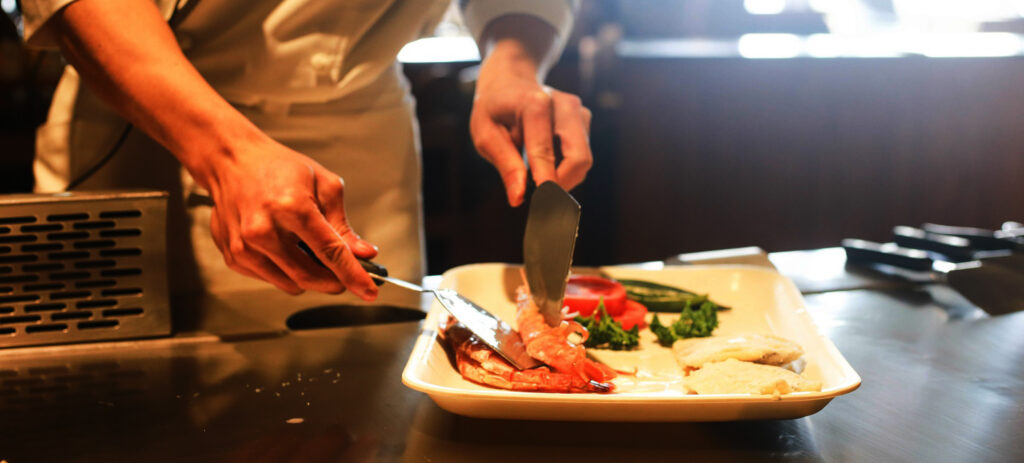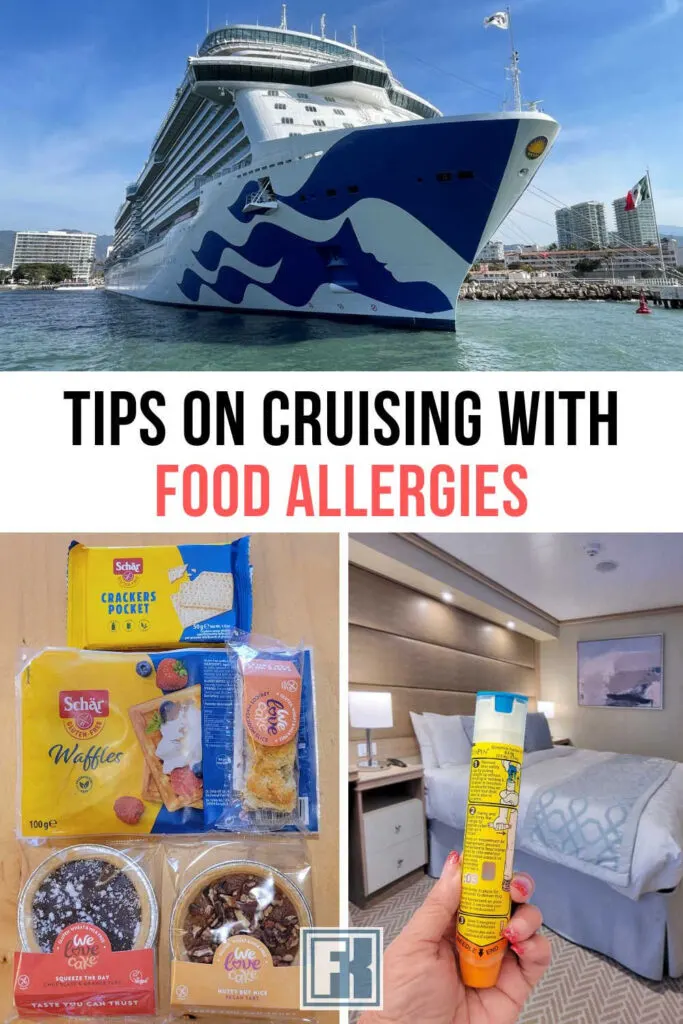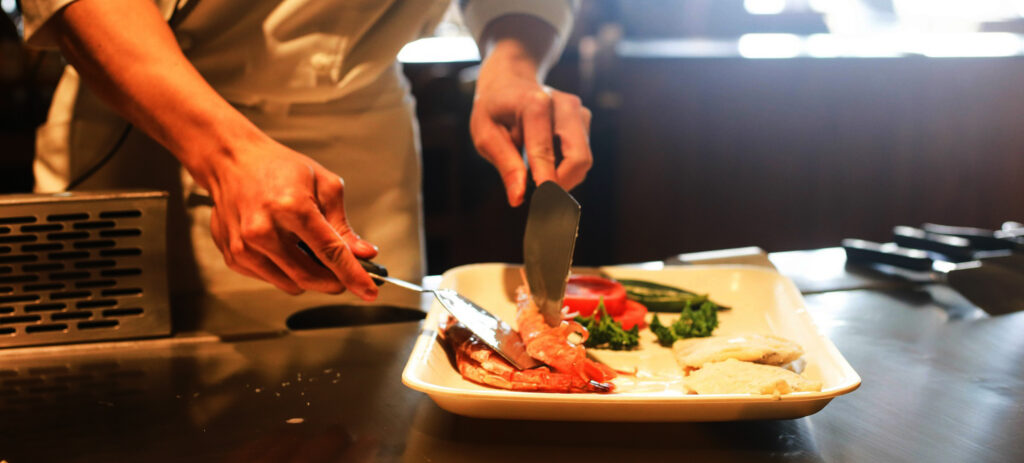Planning a cruise vacation but worried about how to handle your dietary restrictions? Look no further! This article is here to guide you through the process of managing your dietary needs while enjoying a fabulous cruise experience. From gluten-free options to vegan delights, we’ve got you covered. So sit back, relax, and get ready to set sail without any worries about your dietary restrictions.

This image is property of img.cruisecritic.net.
Planning in advance
Research the cruise line’s policies
Before embarking on your cruise, it’s important to research the policies of the cruise line regarding dietary restrictions. Each cruise line may have different protocols and options available for passengers with specific dietary needs. Take some time to browse their website or contact their customer service department to gather information on how they handle dietary restrictions. This will help you have a better understanding of what to expect and how to plan accordingly.
Contact the cruise line about your dietary restrictions
Once you have familiarized yourself with the cruise line’s policies, it’s time to reach out to them directly and inform them about your dietary restrictions. Providing them with your specific requirements will allow them to make the necessary arrangements to ensure your needs are met during the cruise. Whether it’s a food allergy, intolerance, or a specific dietary preference, communicate it clearly to the cruise line so they can accommodate you appropriately.
Notifying the cruise line
Provide details about your dietary restrictions
When contacting the cruise line, be sure to provide as much detail as possible about your dietary restrictions. This includes any allergies or intolerances you have, as well as any specific dietary preferences you follow, such as vegetarian, vegan, gluten-free, or kosher. The more specific you are, the better equipped the cruise line will be to accommodate your needs and provide you with suitable dining options.
Ask about the options available for your restrictions
Alongside providing details about your dietary restrictions, it’s essential to inquire about the options available for you onboard the cruise. Ask about the types of meals they offer to passengers with dietary restrictions and whether they can customize certain dishes to meet your needs. Inquire about any specialty restaurants or alternative dining options they may have that cater specifically to passengers with dietary restrictions. This will give you a better idea of what to expect and the level of accommodation they can provide.
Menu customization
Speak to the head chef
When onboard the cruise, one of the first things you can do to ensure your dietary needs are met is to speak directly to the head chef or the kitchen staff. Talk to them about your dietary restrictions and discuss any concerns or questions you may have. They are usually well-versed in handling special dietary requirements and can provide valuable insights and guidance on the available meal options. Building a rapport with the head chef can also help in creating customized meals to suit your specific needs.
Discuss your dietary needs with the restaurant staff
Beyond speaking to the head chef, it’s also important to communicate your dietary needs with the restaurant staff. While the kitchen staff prepares the meals, the restaurant staff is responsible for serving them. By informing them about your restrictions, they can help ensure that your meals are prepared and served according to your needs. They can also assist in providing alternative options if a particular dish is not suitable for you. Open and clear communication with the restaurant staff will make your dining experience much more enjoyable.
Packing your own food
Bring snacks that fit your dietary restrictions
To ensure you have some backup options throughout your cruise, it’s always a good idea to pack snacks that align with your dietary restrictions. This is especially important if you have specific dietary needs that may not be easily accommodated onboard. Having your own snacks will provide you with peace of mind and ensure you don’t go hungry in case there are limited options available. Pack snacks such as energy bars, nuts, dried fruits, or other non-perishable items that fit your dietary requirements.
Pack some essential meals or ingredients
In addition to snacks, consider packing some essential meals or ingredients that are easy to prepare and align with your dietary restrictions. This can be particularly helpful if you have concerns about the availability or suitability of onboard meals. Pack items such as pre-cooked rice or pasta, canned beans, or your favorite seasonings to add flavor to simple meals. Having these backup options will ensure you have something to rely on in case there are limited options that meet your dietary needs.

This image is property of s3.amazonaws.com.
Exploring alternative dining options
Check if the cruise has specialty restaurants
One way to have more dining options that cater to your dietary restrictions is to check if the cruise ship has specialty restaurants. These are often separate dining venues that provide specific cuisines or dining experiences. Specialty restaurants may have dedicated menus that can accommodate a wide range of dietary needs, such as vegetarian, vegan, gluten-free, or seafood-focused options. Research the ship’s website or inquire with the cruise line about the availability of specialty restaurants and their offerings.
Research ports of call for dining options
While the cruise ship itself may have limited dining options for passengers with dietary restrictions, exploring the ports of call can provide a plethora of dining alternatives. Prior to your cruise, research the destinations you will be visiting and identify restaurants or eateries that are known for catering to specific dietary needs. From vegan-friendly cafes to gluten-free bakeries, there is a high chance of finding local dining options that are more aligned with your restrictions. This will not only provide you with a wider variety of dining experiences but also allow you to sample the local cuisine.
Reading food labels and menus
Check food labels for allergen information
When dining onboard the cruise ship, it’s crucial to read food labels to identify any allergens or ingredients that may pose a risk to your dietary needs. Many packaged or pre-prepared items will have allergen information listed on the label, which can help you make informed choices. Take the time to carefully read the labels, paying attention to common allergens, such as nuts, dairy, gluten, or shellfish, depending on your specific restrictions. This will help you avoid any potential allergens and enjoy your meals safely.
Read through menus to identify suitable dishes
Before heading to the onboard restaurants, take a moment to review the menus and identify suitable dishes for your dietary restrictions. Most cruise ships provide daily menus that are accessible to passengers, either digitally or in print. By reviewing the menus in advance, you can plan your meals and make informed decisions about what to order. Look for items that align with your dietary needs or may be easily customizable to suit your restrictions. This will save you time and ensure a smoother dining experience.

This image is property of cst.brightspotcdn.com.
Attending pre-cruise meetings
Join pre-cruise support groups
To gain valuable insights and advice about handling dietary restrictions on a cruise, consider joining pre-cruise support groups or online communities. These groups often consist of experienced cruisers who have dealt with similar dietary challenges and can provide firsthand tips and recommendations. Engaging with these communities will not only provide you with valuable information but also give you a sense of reassurance knowing that others have successfully navigated dining restrictions on cruises.
Ask questions and get advice from experienced cruisers
Once you are part of a pre-cruise support group or online community, take the opportunity to ask questions and seek advice from experienced cruisers who have firsthand knowledge of handling dietary restrictions. They can share their personal experiences, recommend specific cruise lines or ships that are more accommodating, and provide tips on how to communicate effectively with the ship’s staff. Learning from their experiences will better prepare you for your own cruise and help you navigate any challenges that may arise.
Working with the ship’s staff
Speak to the dining room manager
If you encounter any concerns or issues regarding your dietary restrictions during the cruise, don’t hesitate to speak directly with the dining room manager. They are responsible for overseeing the dining operations and can address any specific concerns you may have. Whether it’s a question about ingredients, an unsatisfactory dining experience, or simply needing clarification, the dining room manager is there to assist you. Be polite and clear in communicating your concerns, and they will likely go above and beyond to ensure you have a positive experience.
Inform the staff about any concerns or issues
While it’s important to address concerns with the dining room manager, it’s equally crucial to inform the ship’s staff about any issues or challenges you may encounter related to your dietary restrictions. Whether it’s through the guest services desk or directly with your cabin steward, make them aware of any special requirements or concerns you have regarding your meals. They can relay the information to the appropriate departments and work towards finding suitable solutions or accommodations for you.

This image is property of www.acclaindia.com.
Considering a dedicated dining time
Opt for a set dining time
When making dining arrangements onboard the cruise, it may be beneficial to opt for a set dining time rather than open seating. By choosing a specific dining time, you can inform the ship’s staff in advance about your dietary needs. This will give them ample time to plan and prepare your meals accordingly. It also allows for more personalized attention from the restaurant staff, as they will become familiar with your restrictions and preferences over the course of the cruise.
Ensure the staff is aware of your dietary needs
Once you have selected a dedicated dining time, make sure the staff is fully aware of your dietary needs. Remind them of your restrictions when making your dining arrangements and communicate any specific concerns or requirements you may have. This includes timing considerations, such as ensuring your meals are served promptly or requesting customized options that suit your dietary needs. Clear and direct communication with the staff will help ensure a smooth dining experience throughout your cruise.
Seeking assistance from a travel agent
Work with a knowledgeable travel agent
If you find it overwhelming to navigate dietary restrictions on a cruise by yourself, it may be beneficial to seek assistance from a knowledgeable travel agent. They will have expertise in matching passengers’ dietary needs with the most suitable cruise lines and ships. A travel agent who specializes in dietary considerations can guide you through the planning process, help you select the best options, and ensure your requirements are communicated effectively to the cruise line. They can also offer insights and recommendations based on their previous clients’ experiences.
Inform them about your dietary restrictions
When working with a travel agent, it’s crucial to inform them about your dietary restrictions from the start. Provide them with all the necessary details regarding your specific needs, including any allergies, intolerances, or preferences. This will enable them to understand your requirements and make appropriate recommendations. By sharing this information, you can ensure that the travel agent is able to support you effectively and enhance your overall cruise experience.
Handling dietary restrictions on a cruise may seem daunting at first, but with proper planning, communication, and proactive measures, you can ensure that your needs are met and enjoy a satisfying dining experience throughout your voyage. By researching the cruise line’s policies, contacting them in advance, customizing your meals, packing backup options, exploring alternative dining, reading labels and menus, attending pre-cruise meetings, working with the ship’s staff, considering a dedicated dining time, and seeking assistance from a knowledgeable travel agent, you can navigate your dietary restrictions with ease and fully savor the journey. Bon appétit on your cruise!

This image is property of foreverkaren.com.
Hi, I’m Mike, the author of Ocean Bliss Journeys. Thank you for visiting 🙂

